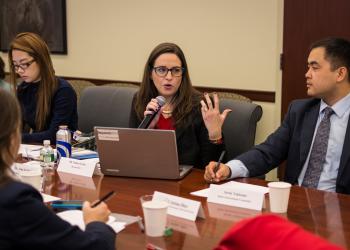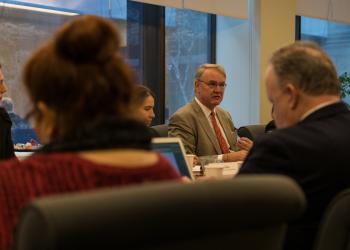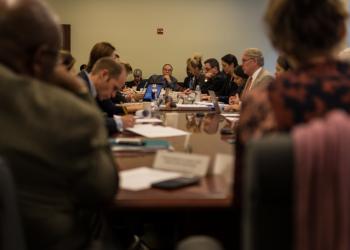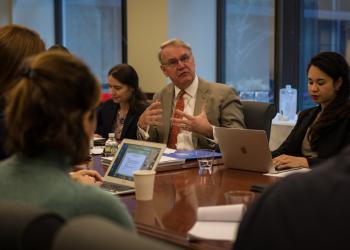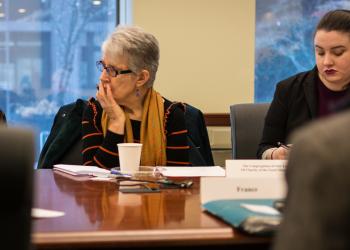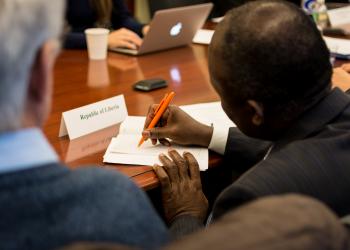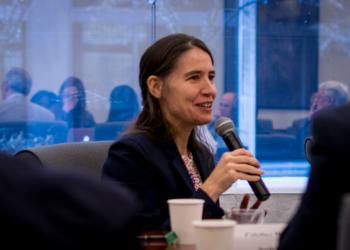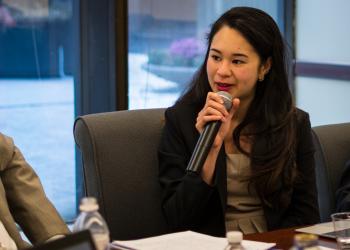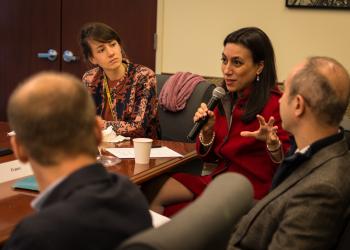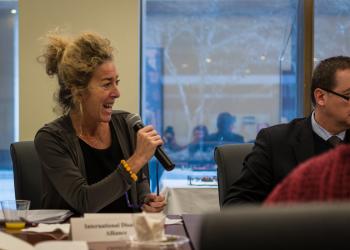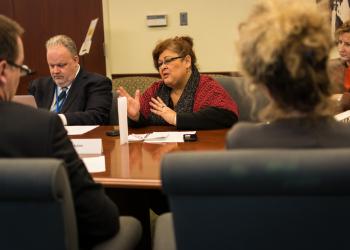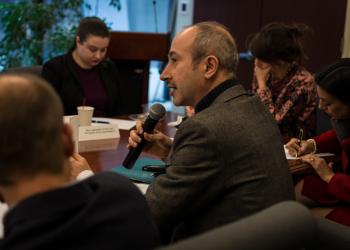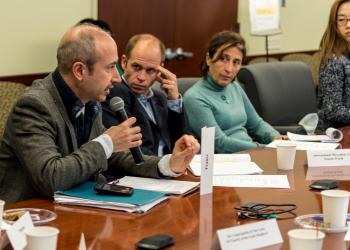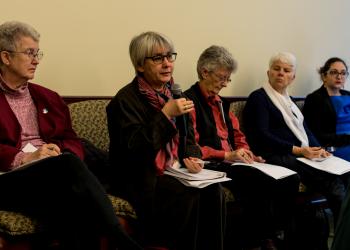Can the UN be made more "fit" for the new global development agenda?
In September, the UN adopted Agenda 2030, a bold and potentially transformative global plan for sustainable development.
The next question is how to implement and monitor the Agenda, which seeks to wipe out poverty, fight inequality, and tackle climate change over the next 15 years.
Towards that end, the UN itself has begun to remodel itself, under the rubric “fit for purpose,” with a goal towards gearing up to support delivery of the 17 Sustainable Development Goals (SDGs), which lie at the heart of the new Agenda.
An informal breakfast meeting held 24 November 2015 at the offices of the Baha’i International Community (BIC) examined this topic, with the theme: “20:20 for Agenda 2030: Articulating a clear vision of a ‘Fit for Purpose’ United Nations.”
The meeting was the 30th in a series of such gatherings designed to bring together diplomats, UN officials, and civil society representatives to discuss the post-2015 development agenda. It was co-sponsored by the BIC and International Movement ATD Fourth World.
The meeting opened with two keynote speakers: John Hendra, Senior Coordinator of UN Fit for Purpose, and Naiara Costa, Advocacy Director of the civil society coalition Beyond 2015.
Mr. Hendra opened by saying that the SDGs are far different from the Millennium Development Goals (MDGs), the UN’s previous development agenda. The SDGs are “much more universal” and they take a human rights based approach, he said.
“This is an integrated agenda – so we need a much transformed international community,” said Mr. Hendra. “This is the transformed agenda – we need transformed responses.”
Within that framework, he said, the UN needs to consider a long term, strategic position of its development program that will consider issues related to governance, organizational arrangements, funding, and partnership with civil society.
“There are five pillars of ‘fit for purpose’ -- universality, integration, human rights, equality and data for development,” he said, then asking: “How do we have a more universal system? Is the UN development system really a system?”
Making the UN more fit for purpose, he said, will require a focus on reaching those who are furthest behind first, and fully integrating the environmental dimension into programs to address poverty and inequality.
”We need to make sure there is accountability, inclusiveness, and that financing is transparent,” he added, referring specifically to the need for greater partnerships with civil society.
Ms. Costa said the idea of reforming the UN to be more “fit for purpose” is a critical element of the implementation of the SDGs.
More specifically, she said, the UN will be called on to perform a series of functions in relation to Agenda 2030. These will include: setting and monitoring international norms and standards, measuring impact, providing policy advice, engaging stakeholders and building partnerships, ensuring such partnerships are accountable and transparent, and the coordination and mobilization of priorities.
“The UN must protect universality and indivisibility of the Agenda,” she added, so as to prevent too much “cherry-picking” as member states seek to set their own priorities.
Ms. Costa also said any reform of the UN should not just focus on downsizing and restructuring, as many have currently suggested.
“Being fit is not only about losing weight but gaining muscles,” she said. “The UN is being pushed to undertake reforms, however we need more than to just stop the system and reboot it or change the name of ECOSOC to something else. We need to make sure that reform is not an end in itself.”
Ms. Costa also pointed to a recent paper by the Global Policy Forum that examined the increasing role of private and corporate funding at the UN.
“How much do the priorities of donors impact the levels of work at the UN?” asked Ms. Costa.
Serik Tokbolat, a representative of the BIC to the UN, noted that such discussions on how to make the UN fit for purpose are especially important in a world beset by increasing humanitarian, climate, and economic crises.
“Thus, the international community as well as the UN system must continually seek better ways to meet the needs of millions of people affected by poverty, conflicts and disasters,” said Mr. Tokbolat. “In this context, the question of how peacekeeping operations, humanitarian and climate action and the global development agenda could and should complement each other is becoming increasingly pertinent.”
Following the opening presentations, there was a general, off-the-record discussion among participants, following Chatham House rules. For a sense of this discussion, please read information notes of the meeting, which can be found here.
